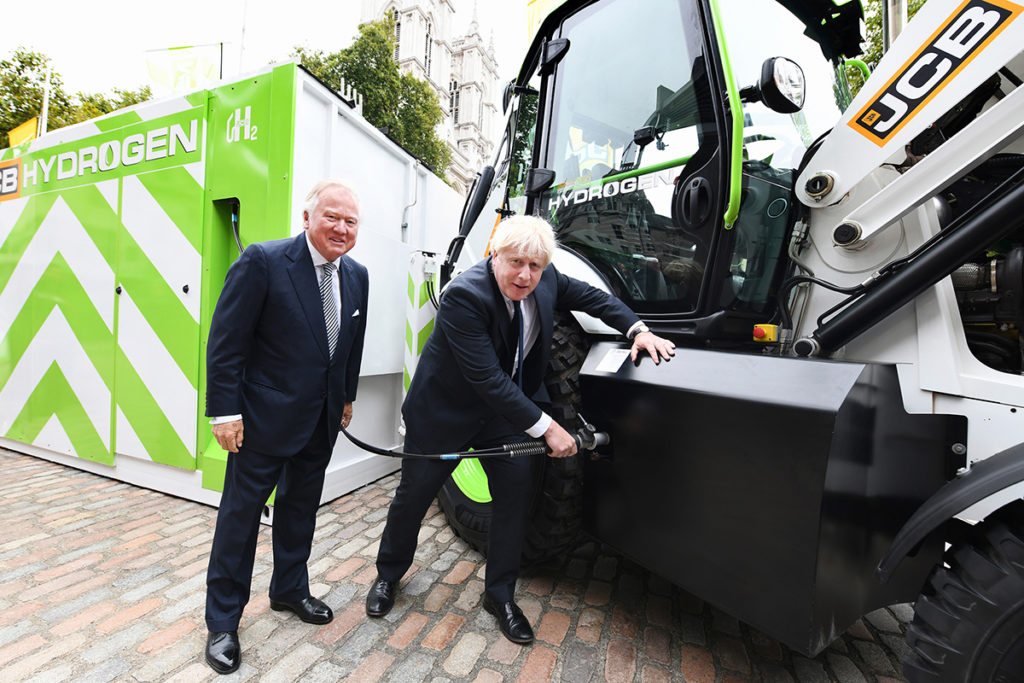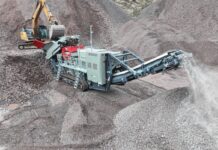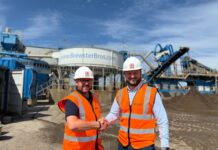
JCB has launched a recruitment drive after announcing plans to invest £100 million on a project to produce ‘super-efficient’ hydrogen engines.
A team of 100 engineers is already working on the project with the recruitment of up to 50 more underway. The manufacturer is targeting the end of 2022 for the first machines to be available for sale.
A prototype hydrogen powered JCB backhoe loader has already been showcased and a second JCB machine – a Loadall telescopic handler – was unveiled at a central London event attended by Prime Minister Boris Johnson.
JCB’s hydrogen technology will be on show in the Green Zone at the COP26 summit in Glasgow when world leaders debate environmental measures.
PM Boris Johnson said, “Great British manufacturers like JCB are developing innovative solutions to slash greenhouse emissions and advance the UK’s green industrial revolution. It was fantastic to see JCB’s super-efficient hydrogen engines, which could overhaul UK manufacturing, help us to rapidly reach our climate targets and ramp up the UK’s hydrogen economy – an exciting area that will be essential to tackling climate change, creating new jobs and attracting investment.”
JCB chairman Lord Bamford said, “Our sort of machinery will need to be powered by something other than fossil fuels. We make machines which are powered by diesel so we have to find a solution and we are doing something about it now. We are investing in hydrogen as we don’t see electric being the all-round solution, particularly not for our industry because it can only be used to power smaller machines.
“It does mean we will carry on making engines, but they will be super-efficient, affordable, high-tech hydrogen motors with zero CO2 emissions, which can be brought to market quickly using our existing supply base. These will be our industry’s first hydrogen engines, developed in Great Britain by British engineers. Hydrogen motors have the potential to help the UK reach CO2 emissions targets more quickly.”








